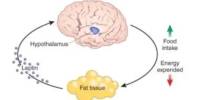Vitamin B6 is crucial for brain metabolism. As a result, in a variety of mental diseases, a low vitamin B6 level is connected with reduced memory and learning capacities, a melancholy mood, and even true depression. In older persons, insufficient vitamin B6 has been associated to memory loss and dementia.
Although some of these observations were reported decades ago, the precise role of vitamin B6 in mental disease remains largely unknown. However, it is obvious that increasing vitamin B6 consumption alone, such as through dietary supplements, is insufficient to prevent or treat brain function issues.
Publication in eLife
A study team from Würzburg University Medicine has recently discovered a more effective technique to enhance vitamin B6 levels in cells: by selectively preventing its intracellular breakdown. Antje Gohla, a Professor of Biochemical Pharmacology at Julius-Maximilians-Universität Würzburg (JMU), is in charge of this.
Other participants include the Rudolf Virchow Center for Integrative and Translational Bioimaging at JMU, the Leibniz-Forschungsinstitut für Molekulare Pharmakologie-FMP Berlin, and the Institute for Clinical Neurobiology at Würzburg University Hospital. The team has recently published the findings of their inquiry in the scientific journal eLife.
We were already able to show in earlier studies that genetically switching off the vitamin B6-degrading enzyme pyridoxal phosphatase in mice improves the animals’ spatial learning and memory capacity.
Antje Gohla
Enzyme Blockade Improves Learning Ability
“We were already able to show in earlier studies that genetically switching off the vitamin B6-degrading enzyme pyridoxal phosphatase in mice improves the animals’ spatial learning and memory capacity,” Antje Gohla, a researcher, says. To see if comparable effects may be accomplished using pharmacological drugs, researchers are now looking for compounds that bind to and inhibit pyridoxal phosphatase.
With success: “In our experiments, we identified a natural substance that can inhibit pyridoxal phosphatase and thus slow down the degradation of vitamin B6,” the pharmacologist reports. The working group was successful in increasing vitamin B6 levels in nerve cells involved in learning and memory processes. The name of this natural chemical is 7,8-Dihydroxyflavone.

New Approach for Drug Therapy
7,8-Dihydroxyflavone has already been described in numerous other scientific papers as a molecule that can improve learning and memory processes in disease models for mental disorders. The new knowledge of its effect as an inhibitor of pyridoxal phosphatase now opens up new explanations for the effectiveness of this substance. This could improve the mechanistic understanding of mental disorders and represent a new drug approach for the treatment of brain disorders, the scientists write in their study.
The team also considers it a great success that 7,8-Dihydroxyflavone has been identified as an inhibitor of pyridoxal phosphatase for the first time — after all, this class of enzymes is considered to be particularly challenging for drug development.
A Long Way to a Drug
When will individuals benefit from this discovery? “It’s too early to say,” adds Marian Brenner, the study’s first author. However, there is compelling evidence that using vitamin B6 in conjunction with pyridoxal phosphatase inhibitors may be effective for a variety of mental illnesses and neurodegenerative diseases.
In the next stage, Gohla and her team hope to create improved compounds that inhibit this enzyme precisely and effectively. These inhibitors might then be utilized to determine whether boosting cellular vitamin B6 levels is beneficial in mental or neurodegenerative illnesses.
















